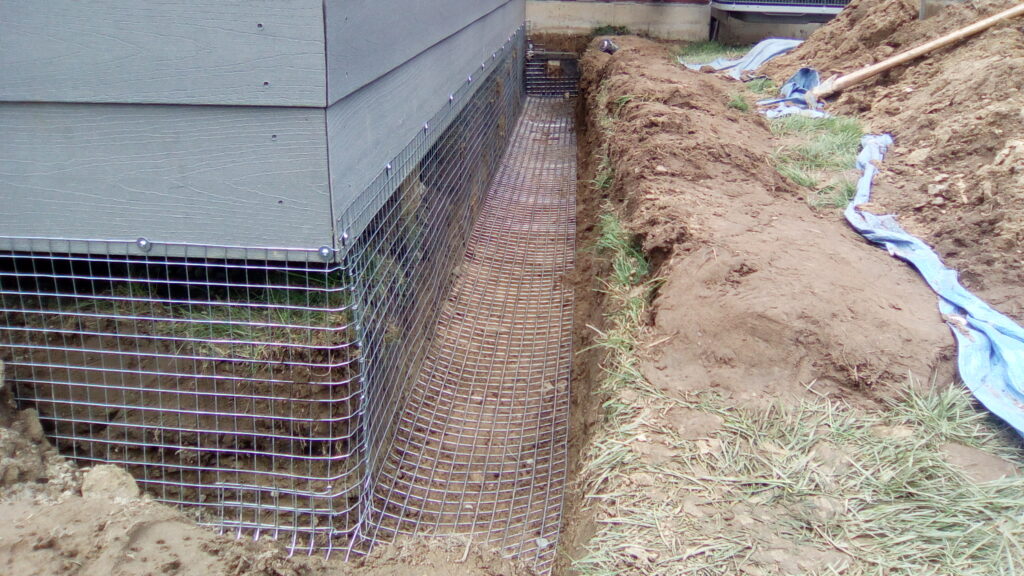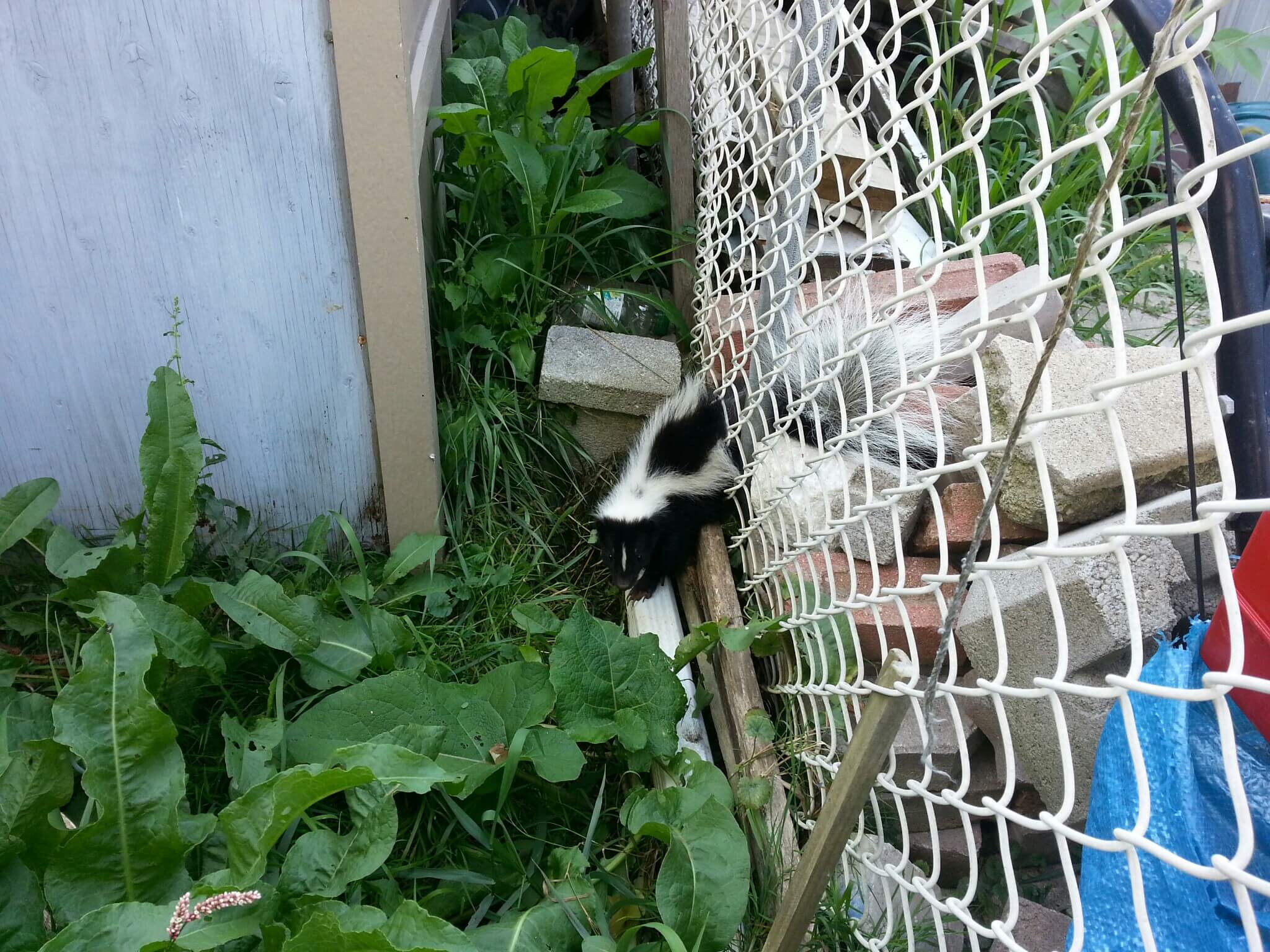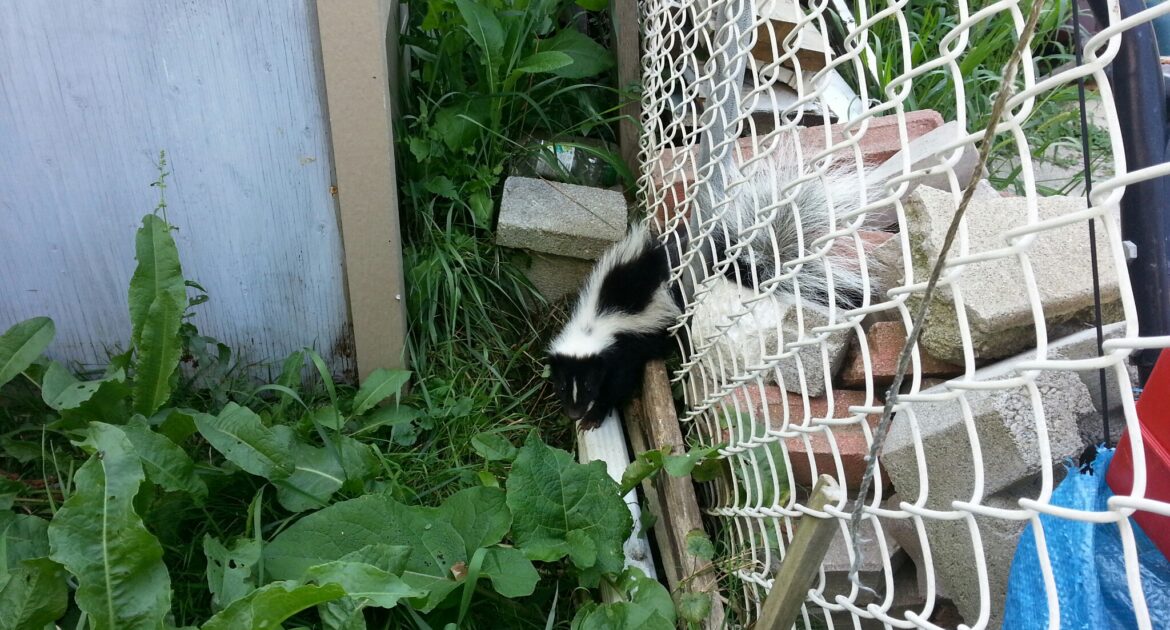Because skunks are poorly understood creatures, many people regard them with a fear that is usually disproportionate to the actual threat they pose. Nevertheless, a close encounter between a skunk and a human or a skunk and a pet can have severely negative consequences for the human and the pet. If you find a skunk on your property, you should treat it with respect and caution, which includes calling for professional skunk removal in Durham rather than trying to handle the problem yourself.
Are Skunks Aggressive?
Generally speaking, skunks aren’t aggressive animals. They don’t attack without provocation, and when faced with a potential predator, they prefer to run away. If they can’t find an escape route, they prefer to use their smelly spray as a defence mechanism to get the potential predator to back off. Skunks usually give off warning signals that they are about to spray to try to scare off the perceived threat without having to use their spray. If the skunk can’t escape and the spray doesn’t work as a deterrent, they may bite or scratch in self-defence, but only as a last resort.
Mother skunks are protective of their babies and may stand their ground even if there is an escape route available. Nevertheless, they still won’t attack without provocation. A skunk that is infected with rabies may behave unpredictably, but generally speaking, if you leave skunks alone, they’ll leave you alone.
In What Ways Are Skunks Dangerous?
While skunks don’t mean any harm, they can cause it inadvertently. Skunk musk, i.e., the liquid that they spray in self-defence, contains sulfuric acid. People with underlying respiratory or skin conditions can have severe reactions to it. If it gets into the eyes, it can cause blindness, which may be permanent. Skunk spray is generally more dangerous to pets than people.
Skunks are frequent carriers of rabies. That doesn’t mean that all skunks are infected, but it means that your risk of infection from a skunk bite or scratch is greater than it might be from other animals. Skunks can also carry diseases that don’t affect humans but are dangerous to pets, such as distemper. They can also introduce parasites such as fleas and ticks to your property, as well as spread bacteria through their feces. Parasites and pathogens can affect both you and your pets.
How Can You Protect Your Family From Skunks?
If you come across a skunk, whether on your property or somewhere else, you should keep a safe distance. Skunks can spray accurately up to 10 feet, but if you don’t get too close, they may not see you as a threat.
Most people know how to recognize a skunk’s distinctive black-and-white markings and keep their distance. However, unless a dog or cat has had a run-in with a skunk in the past, it may not realize that it is at risk. Dogs are especially susceptible to getting sprayed by a skunk because the gestures a skunk uses to warn off predators look like overtures of friendship to a dog. Skunks are most active at night, so if you have to let your pet out after dark, turn on the outdoor lights first to startle any skunks that might be there. Don’t let pets out if you see skunks on your property, and don’t feed pets outside because pet food can attract skunks.
How Does Skedaddle Perform Skunk Removal in Durham?

Our technicians have extensive training and experience to know how to get rid of a skunk. We first assess to find where the skunk is living in your home and how it got in. We then remove the baby skunks by hand and place them in a heated box so the mother can relocate them to a new den. We seal off entry points so the skunks can’t get back in, all without harming the animals. Find out more about the wildlife removal services we offer in Durham.




